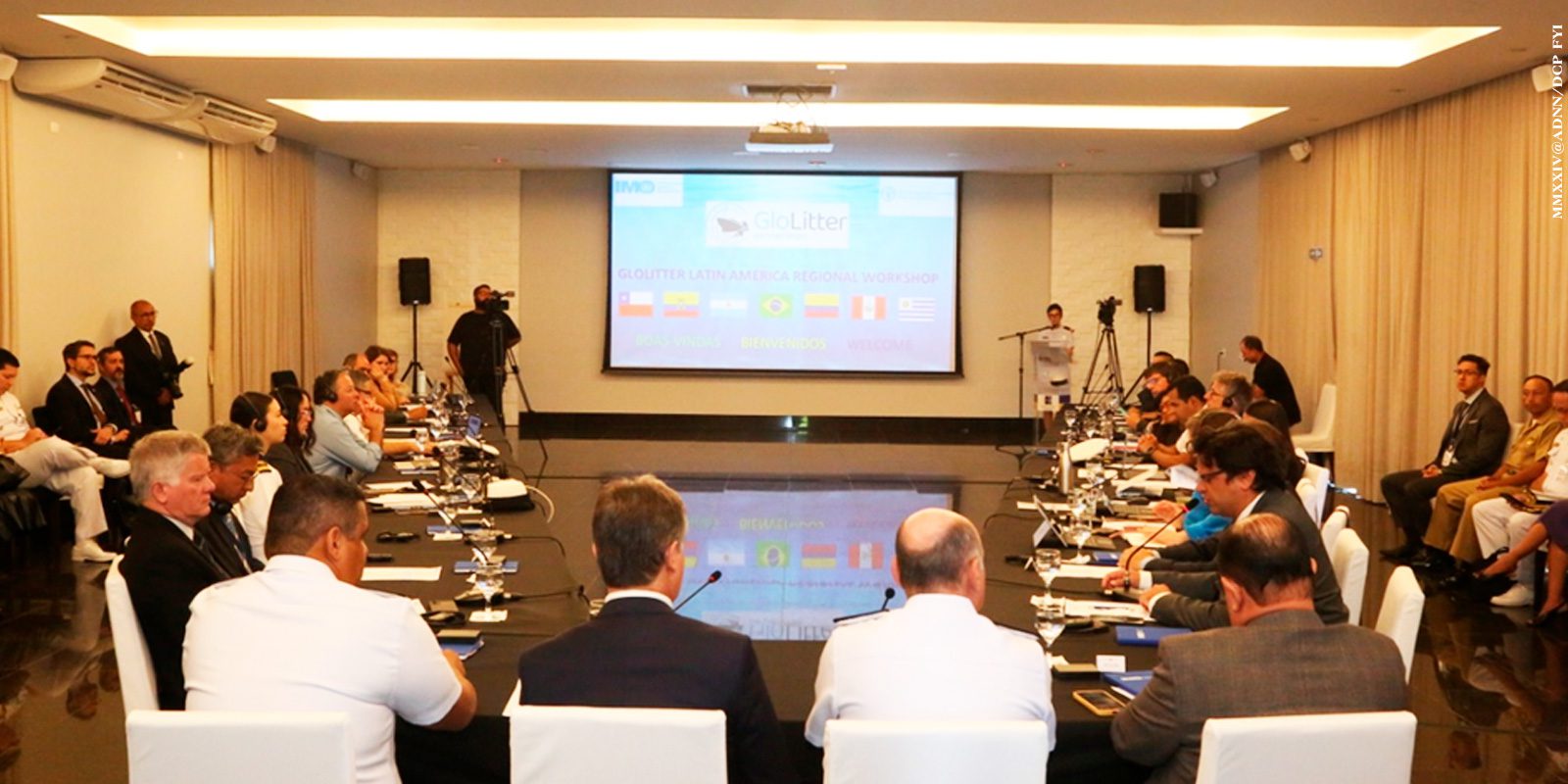Brazil and six other countries meet this week to review action plans
By First Lieutenant (RM2-T) Daniela Meireles – Brasília, DF
Brazil and six other South American countries are beginning to review their national action plans for preventing and reducing marine pollution caused by maritime transportation and fishing vessels. The work is taking place in Brasilia-DF, during a meeting of the “GloLitter” Partnership Project, promoted by the Food and Agriculture Organization of the United Nations (FAO) and the International Maritime Organization (IMO).
According to the Chief of Staff of the Brazilian Fleet, Fleet Admiral André Luiz Silva Lima de Santana Mendes, marine biodiversity contributes to sustaining the continent’s economies and provides livelihoods for millions of people. “Our region depends on our actions to protect and responsibly use the riches that our oceans offer. Together, we are walking a path to a safer, more prosperous and sustainable future,” he said.
Throughout this week, authorities from the “GloLitter” partner countries, which include Argentina, Colombia, Ecuador and Peru; as well as Brazil, the project’s regional leader; and guests Chile and Uruguay, will share successful experiences in combating marine pollution. “One of the aims of this first regional workshop is to share best practices in order to apply them within the context not only of maritime transport, but also of the Navy,” explains the person in charge of the IMO Affairs Coordination Division, Captain Paulo Roberto da Costa Barros.
The Brazilian Navy is part of the national task force involved in developing the action plan, along with other institutions. “The challenge of plastic pollution, which ends up leaking into water resources, is a very difficult, interconnected problem that needs coordination. That’s why, for the Ministry of the Environment, working with the Brazilian Navy and other ministries is extremely important in order to make progress on this issue,” says the National Secretary for the Urban Environment and Environmental Quality, Adalberto Felicio Maluf Filho.
Some of the waste found at sea comes from ships, according to Flávio Haruo Mathuiy, Environmental Affairs Coordinator for the IMO’s Coordinating Committee for IMO Affairs. “It’s a project that aims to combat plastic waste from ships and fishing vessels, because we know that 20% of what is in the oceans today comes from this source. Brazil, as a regional leader, is trying to help Latin American countries so that we can improve public policies here and also in partner countries,” he concluded.

Source: Agência Marinha de Notícias *** Translated by DEFCONPress FYI Team ***
